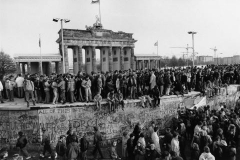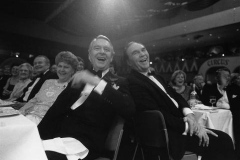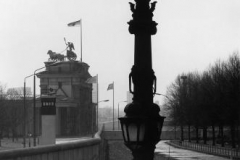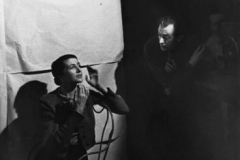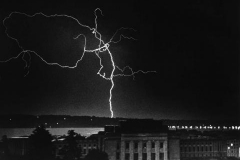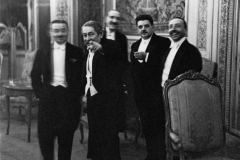
Eric Saloman & Barbara Klemm
Introduction
Goethe-Institut / Max Mueller Bhavan Pune in collaboration with the India House Art Gallery is pleased to present Zeitsprung / Leap in Time, an exhibition by the Institut for Auslandsbeziehungen (ifa). Curated by German photographer Andreas Rost, the show consists of works by legendary German photojournalists Erich Salomon and Barbara Klemm. Andreas Rost examines the dual roles of these two photographers, who as photojournalists have created unique documentation of their times, and as artists produced photographs of exceptional intensity. Though both Salomon and Klemm have considered themselves photojournalists, today they are also looked at as artists because their works not only have tremendous news value, but are also complex in their composition, shedding light on the political, social and psychological situation they depict.
Erich Salomon (1886-1944) was a gentleman who photographed other gentlemen. As a photojournalist he investigated the then unknown world of parliamentary workings for newspaper readers. His position and fame gave him access to the highest echelons of power, as well as celebrities from the fields of art, cinema and culture. Mostly he worked with a hidden camera and his subjects were unaware that they were being photographed. Due to these methods his works reflect the actual workings of politics rather than its staged management. The rise of the Nazis ended his career in Germany, in 1932 he produced his only socio-political reportage, entitled “The Prisoners of the World Crisis”.
During her 40 odd years with Frankfurter Allgemeine Zeitung, Barbara Klemm has been witness to some of the most defining moments in history. Her works have achieved an iconic status, and reflect her in depth knowledge regarding her subjects and the situation. Though she never used a hidden camera, her unobtrusive presence allowed her to capture her subjects in a very natural state, and access important events and witness unusual situations. She often stood at the sidelines, and elected to press the shutter shortly before or after proceedings reached their climax.


